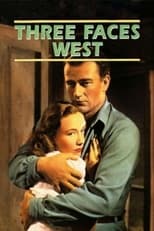
Sigrid Gurie
From Wikipedia, the free encyclopedia
Sigrid Gurie (May 18, 1911 – August 14, 1969) was a Norwegian American motion picture actress from the late 1930s to early 1940s.
In 1936, Gurie arrived in Hollywood. Film magnate Sam Goldwyn reportedly took credit for discovering her, promoting his discovery as "the new Garbo" and billed her as "the siren of the fjords". When the press discovered Gurie's birth in Flatbush, Goldwyn then claimed "the greatest hoax in movie history." She starred as Kokashin, daughter of Kublai Khan, in the 1938 production of The Adventures of Marco Polo, and went on to give worthwhile performances in such films as Algiers (1938), Three Faces West (1940) and Voice in the Wind (1944). She had a minor role in the classic Norwegian film Kampen om tungtvannet (1948). The movie was based principally on the book Skis Against the Atom which was written by her brother.
In the late 1940s she attended the Kann Art Institute, operated in West Hollywood by abstract artist Frederick I. Kann (1886–1965). She studied oils and portraiture. Among her works were landscapes, portraits and pen and ink sketches.
From 1961 to 1969 she lived in San Miguel de Allende, Mexico, where she continued painting, and was also designing jewelry for Royal Copenhagen in Denmark. She entered the hospital in Mexico City on an emergency basis for a recurring kidney problem, then developed a blood clot that passed through her lungs, which led to her death.
| Known For | Acting |
|---|---|
| Most Rating | 8.298 |
| Birthday | 1911-05-18 |
| Place of Birth | Brooklyn, New York City, New York, USA |
| Also Known As | Sigrid Guri Haukelid, |

1938

Algiers
6.394/33
Pepe Le Moko is a notorious thief, who escaped from France. Since his escape, Moko has become a resident and leader of the immense Casbah of Algiers....
Watch Now
Algiers

1939

Rio
5/10
Diabolical French capitalist Paul Reynard is forced to leave Irene, his bride of one year, when he is arrested for the crimes of forgery and embezzlem...
Watch Now
Rio

1940

Three Faces West
5.5/15
Viennese surgeon Dr. Braun and his daughter Leni come to a small town in North Dakota as refugees from Hitler. When the winds of the Dust Bowl threate...
Watch Now
Three Faces West

1944

Voice in the Wind
5.227/11
Former concert pianist, victim of Nazi torture, pursues a confused, melancholic existence on the island of Guadalupe.
Watch Now
Voice in the Wind

1944

Enemy of Women
5.1/4
Playwright Joseph Goebbels turns Nazi propagandist and loses his girlfriend to another man.
Watch Now
Enemy of Women

1938

The Adventures of Marco Polo
5.9/11
The Venetian traveler Marco Polo meets Kublai Khan and foils a plotter with fireworks in medieval China.
Watch Now
The Adventures of Marco Polo

1940

Dark Streets of Cairo
6/1
A rapid series of murders occurs when a professor disrupts a tranquil Egyptian tomb by removing some precious jewels.
Watch Now
Dark Streets of Cairo

1948

Sword of the Avenger
8/2
Roberto Balagtas is falsely arrested for treason and sent to prison where he is tortured. He escapes with other prisoners, but only Batagtas survives...
Watch Now
Sword of the Avenger

1948

Sofia
5.7/3
A former OSS agent is assigned to rescue two atomic scientists from the dastardly Russians and spirit them away from behind the Iron Curtain.
Watch Now
Sofia

1939

The Forgotten Woman
0/0
A beautiful woman is forced to help gangsters in a robbery, and is arrested as an accessory.
Watch Now
The Forgotten Woman

1950

The Du Pont Story
0/0
A straight-line historical account of the Du Pont chemical manufacturing company and its vital role in the growth of the USA.
Watch Now